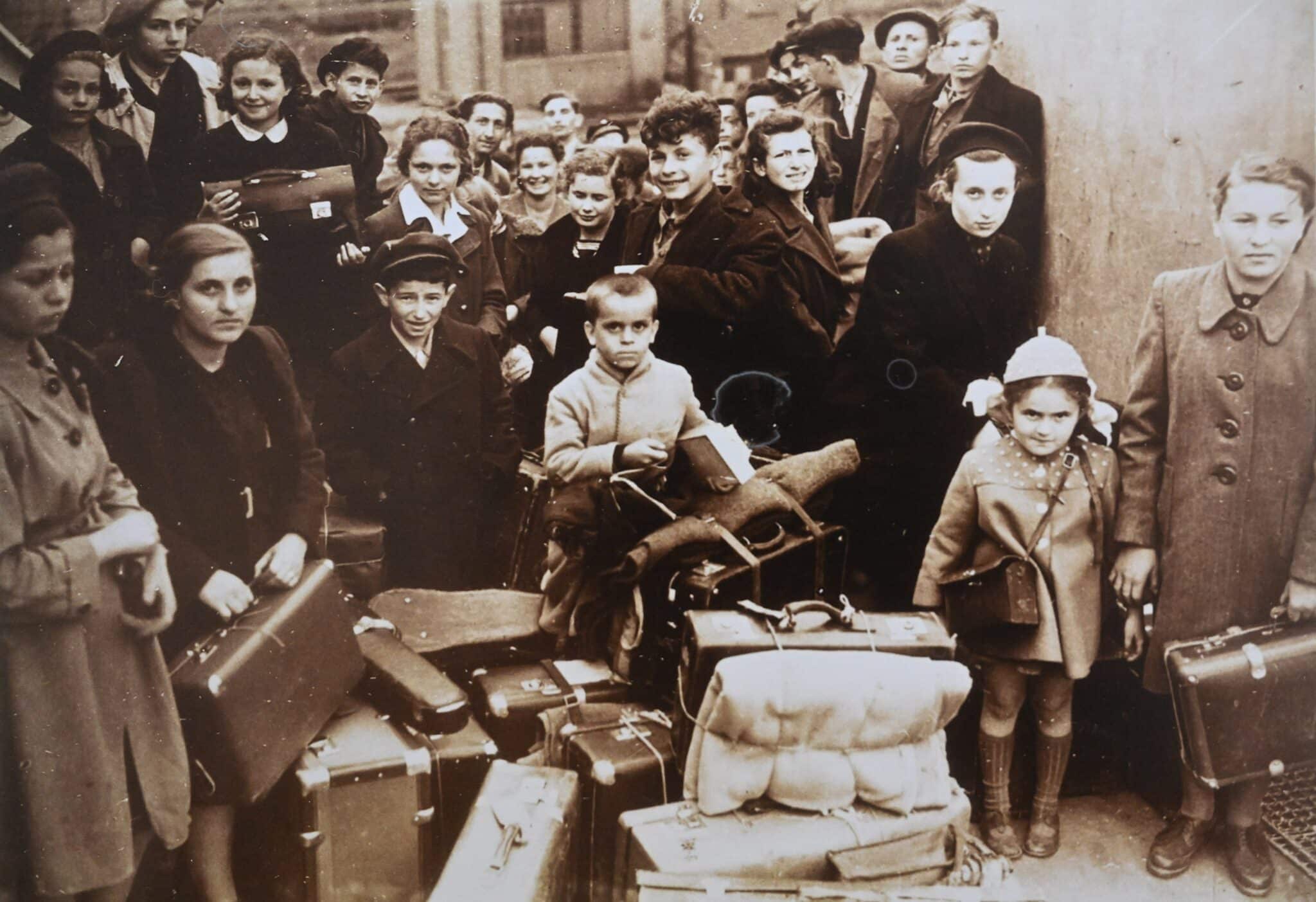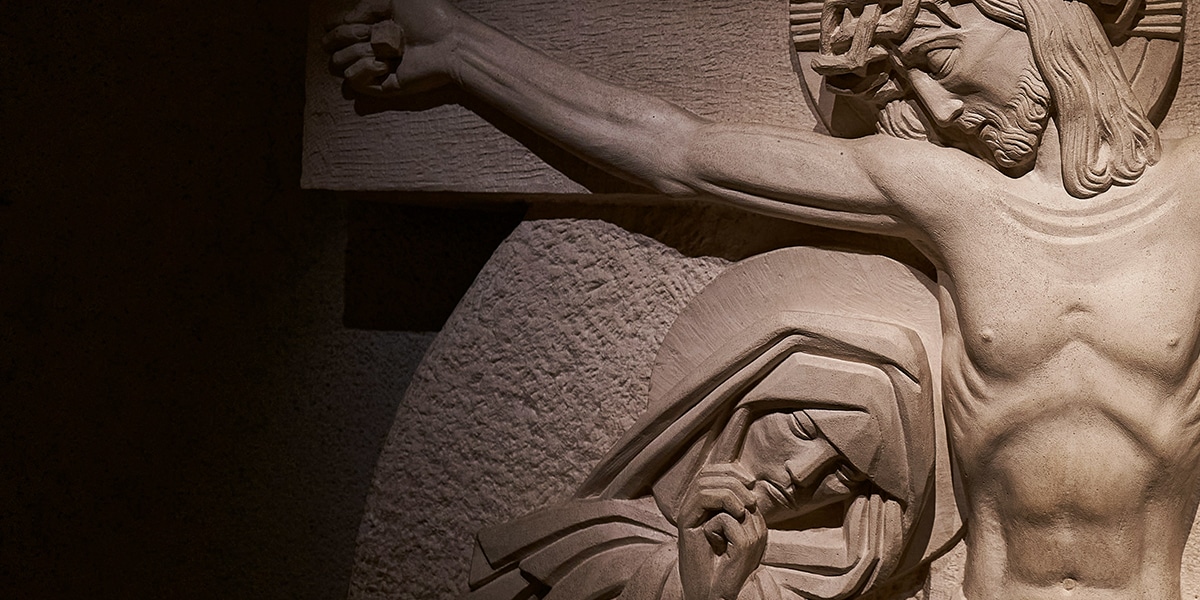“The Lord give you peace!”
—St. Francis
A most beautiful quality of Francis was his courtesy. He welcomed all who came to him. And so we welcome you in your quest to discover his life and spirit in ways that may deepen and enliven your journey as a Christian.
The foundation of the Franciscan way of life is Jesus Christ and no other. To follow Francis’ way is to strive with all our bodies, minds and spirits to go from “Gospel to life and life to the Gospel.” To begin to accomplish that, we must know the Gospel of Jesus in order to live our lives in accord with it. To know the Gospel, we must know the Lord. That is the direction toward which each of the following reflections leads us. We who have followed Jesus now begin again to bring our lives into the Gospel life, the Gospel into our everyday lives.
When Francis said these words: “Let us begin to do good, for as yet we have done little,” most people already considered him a saint. In his mind, there was no plateau in life where he could feel he had “made it” and could coast into heaven from then on. He did not compare his love with that of other men but with that of Christ; hence, he always saw an infinite expanse into which he could still go, becoming more and more like his Lord.
The following books celebrate the life and legacy of Assisi’s favorite son.
Francis: The Journey and the Dream
By Murray Bodo, OFM
Excerpt: Francis stood atop Mount Subasio gazing upon the breathtaking panorama of Assisi and the whole valley of Spoleto below him. He looked down and saw a tiny jonquil looking up at him. And he forgot the majesty of mountains and valleys in concentrating on the delicate, trembling beauty of this single mountain flower. It stood there in the freedom of the mountain air glorifying God. Its life, so brief and vulnerable, was an act of praise as everyone’s life should be. It did not worry about what it would accomplish in life or leave behind. Nor did it fear for its own brief existence. It simply was.
How much more should we human beings be witnesses to the glory of simply existing? We will live forever. Our existence alone is enough, and we are glorious apart from any work we may produce or any life we may engender. But we have to learn that liberating truth by meeting God in the soul’s own core.
God’s love and acceptance of us makes possible our own self-love and self-acceptance.
That was the secret and the mystery of the hermitage on Mount Subasio. All was serene and peaceful on that wild and precarious mountainside because everything merely was. No tree had to justify its being there by working harder than the other trees. It simply grew with its own inner life and rhythm and lifted its branches to the sky.
This little flower at Francis’ feet felt no jealousy that Francis was taller and could move about at will while it was rooted in the one spot of ground for all its life. Why then did people strive to be what they were not and count their own worth in terms of their success? Francis wished that all people were inner people so that they could look at this jonquil and see themselves.
Dating God: Live and Love in the Way of St. Francis
by Daniel P. Horan, OFM
Excerpt: Francis did not see in the Word of God some removed and abstract sense of God’s presence but recognized the truly intimate and life-giving quality of Scripture. We see this most strongly in the assertion that Francis makes before instructing his brothers to collect these pieces of Scripture, when he explains that it is Scripture that allows us to “impress on ourselves the sublimity of our Creator.”
The God who is so oftentimes viewed as removed or absent or so totally other-than-us that we cannot possibly relate becomes accessible to us and close through Scripture. This is what Francis means when he says that God’s sublimity becomes impressed on us through Scripture.
Like a loved one’s correspondence that we keep in a special place and treasure because it reveals some dimension of a person’s heart and soul, these fragments of Scripture are seen by Francis as invaluable and demanding our care and attention.
Francis’ whole way of life began with Scripture. When the time came to more formally organize what it means to live as a friar minor (a “lesser brother”) in the world, Francis explained that “the Rule and Life of the Lesser Brothers is this: to observe the Holy Gospel of Our Lord Jesus Christ by living in obedience, without anything of one’s own, and in chastity.” The saint’s first biographer explains that even before Francis lived a more formal religious life, in the time commonly remembered as the period of Francis’ “conversion,” the young man became enthralled with a particular selection of passages from the Gospel as they were read in church.
Francis’ desire, ultimately, was to follow in the footprints of Christ, to be open to the will of God as Christ was open to the will of God, and the way he was able to discern that path was in and through Scripture.

Live Like Francis: Reflections on Franciscan Life in the World
By Jovian Weigel, OFM, and Leonard Foley, OFM
Excerpt: St. Francis never tired of speaking about God’s goodness. He could not think of enough wonderful names to give him. Above all, Francis thought of God as his good Father. In Francis’ rediscovery of Christ in the Gospel, he found that Christ continually called upon his Father, doing all things for love of his Father. Christ makes us his brothers and sisters. He gives us his own Father, the most loving parent!
God possesses all the goodness, beauty, and happiness that the human mind can imagine—and infinitely more than we can envision. God is infinitely, eternally, unimaginably good. God is infinite love. And God wants us to share that goodness! Love is a sharing in God’s own Spirit. There is something mysterious about it because it is divine. Love manifests itself in a myriad of ways which we notice when we are observant.
God is not bound by limitations. God’s love is an infinite torrent wider than the universe, flowing within the community called Father, Son and Spirit, and then pouring out on the whole world.
Jesus is the sign of this love, captured and emptied out into a body and spirit like ours. His love was divine—he gave us all he had, even his life. Yet his love was also human—even Jesus had to make judgments about what to give, when to give, what not to do, what was wise now, what tomorrow. He had to consider what others’ needs really were and the best way to fill them.
Love simply must expand, radiating its light and warmth in all directions. The happier we are, the more we want to tell others, to share our happiness with them. God, who is Love itself, also wanted to share goodness with others. God was not forced to share this goodness; God wanted to! God wanted to be our Father, to give us divine life, goodness, and happiness.
Compassion: Living in the Spirit of St. Francis
By Ilia Delio, OSF, PhD
Excerpt: Although God lets go so that we may exist, we do not let go easily, and we tend to cling to things. Francis indicated that we cling to attitudes and behaviors, as much as we cling to our material possessions. I have known people who cling to past hurts with the intensity of a fresh wound even though the person who sparked their emotional outrage has long been dead. People possess the ghosts of the past with tenacity, refusing to let go and live in the present. They are not poor persons, and they usually fail to enjoy the presence of God’s love.
Francis considered anger, or being disturbed at the sin of another, as the mark of possessiveness. He suggested that we should turn our attention to the sinner rather than the sin. Otherwise we cling to our anger and become upset because we self-righteously judge the one who sins. Anger can turn prayer into a pancake—thin and flat—preventing us from being opened up to God because we are too filled up with ourselves.
In “Admonition Fourteen,” for example, Francis writes: “There are many who, while insisting on prayers and obligations, inflict many abstinences and punishments upon their bodies. But they are immediately offended and disturbed about a single word which seems to be harmful to their bodies or about something which might be taken away from them. These people are not poor in spirit.”
Francis’ words remind us of Paul’s warning to the Corinthians: “If I give away all my possessions, and if I hand over my body so that I may boast, but do not have love, I gain nothing” (1 Corinthians 13:3).
Francis, like Paul, reminds us that, without love, material poverty is worthless and perhaps sinful. What we are called to do as poor persons is to “let go and let God”—let go of everything we cling to and allow God to be the center of our lives; not to possess anything (or anyone) for ourselves but to possess God alone.
Eager to Love: The Alternative Way of Francis of Assisi
By Richard Rohr
Excerpt: In stories of his life, Francis is quoted as talking to or about larks, lambs, rabbits, pheasants, falcons, cicadas, waterfowl, bees, the famous wolf of Gubbio, pigs whom he praised for generously giving their bodies for our food, and hooked fish that he tried to throw back into the water whenever possible. He addresses inanimate creation too, as if it were indeed ensouled, which we know because his “Canticle of the Creatures” includes fire, wind, water, Brother Sun, Sister Moon, and, of course, “our sister mother earth” herself. He even told the friars to only cut down part of a tree for their needs, so that it “might have hope of sprouting again.”
So-called “nature mysticism” was in fact a worthy first path for Francis, and also for Bonaventure who saw all things as likenesses of God (vestigia Dei), fingerprints and footprints that reveal the divine DNA underlying all living links in the Great Chain of Being. Both Francis and Bonaventure laid the foundation for what John Duns Scotus would later call “the univocity of all being,” and what Dawn Nothwehr, a Franciscan sister, calls “cosmic mutuality.”
Creation itself—not ritual or spaces constructed by human hands—was Francis’ primary cathedral, which then drove him back into the needs of the city, very similar to Jesus’ own movement between desert solitude and small-town healing ministry.
The Gospel transforms us by putting us in touch with that which is much more constant and satisfying, literally the “ground of our being,” and has much more “reality” to it, rather than theological concepts or the mere ritualization of reality. Daily cosmic events in the sky and on the earth are the Reality above our heads and beneath our feet every minute of our lives: a continuous sacrament.
I find that a preoccupation with religious rituals tends to increase the more we remain untouched by Reality Itself—to which the best rituals can only point. Remember, even question 16 of the Baltimore Catechism answered firmly, clearly, and definitively that “God is everywhere!”
Walking with Francis of Assisi: From Privilege to Activism
By Bruce Epperly
Excerpt: Francis knew better than today’s apathetic materialists and insatiable consumers. Although the saint did not articulate a systematic ethics of reverence for life, Francis’ lifestyle revealed his insight that humans and nonhumans alike can feel pain as well as joy. He knew the wolf of Gubbio was afraid as well as angry. Francis recognized that his threats were based on fear of injury.
The worm underfoot does not want to be smashed by our careless meanderings. The swallows want to sing and rejoice, praising God with melodious hymns and joyful chirps. What we judge as instinctual in the nonhuman world may reveal a deeper experience of joy, contentment, and foresight.
Those who are forgotten, abused, disinherited, and unjustly treated can feel! This applies to nonhumans as well as humans!
There is a solidarity in suffering that joins spirits and is heightened by our recognition that when the least of these sufferers, God is in pain. God is, as the philosopher Alfred North Whitehead asserts, “the fellow sufferer who understands.” God is also the joyful companion who celebrates with all creation.
Francis saw God’s presence in all things and all things embraced in God’s experience. This is not “pantheism,” which assumes the world and God are one reality, but what today’s theologians describe as “panentheism,” the recognition that the world is the body of Christ in which God’s Spirit breathes through and creates in all things and embraces the experiences of all things. God is in all things and all things are in God.












